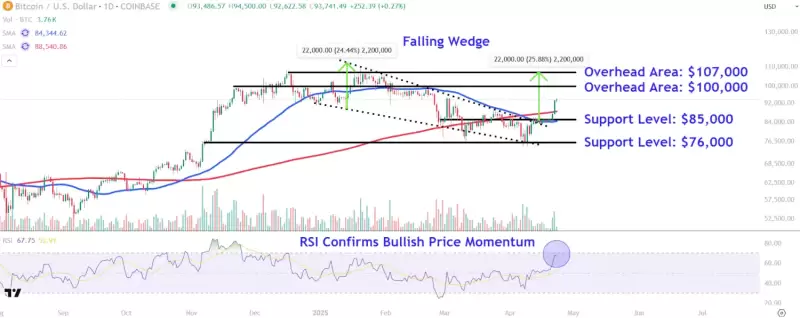 |
|
 |
|
 |
|
 |
|
 |
|
 |
|
 |
|
 |
|
 |
|
 |
|
 |
|
 |
|
 |
|
 |
|
 |
|
Cryptocurrency News Articles
New blood group system in humans identified, marking a major breakthrough in hematology
Jan 13, 2025 at 05:00 am

A team of researchers from the UK and Israel has identified a new blood group system in humans, marking a major breakthrough in hematology. The discovery, published in September, stems from a puzzling case in 1972, solving a half-century-old mystery and deepening our understanding of human blood diversity.
The case involved a pregnant woman whose blood lacked a surface molecule found on nearly all human red blood cells. This molecule, now identified as the AnWj antigen, eventually led to the classification of the MAL blood group system after decades of dedicated research.
“It represents a huge achievement, and the culmination of a long team effort,” says Dr Louise Tilley, a hematologist at the UK National Health Service who has spent nearly 20 years studying this rare blood variation. “This discovery enables us to provide the best care to rare, but important, patients.”
According to the World Health Organisation’s global blood safety database, understanding blood group variations is essential for ensuring safe transfusions. While most people are familiar with the ABO blood system and the Rh factor, human blood classification is far more complex.
The National Institutes of Health reports that scientists have identified over 30 blood group systems, each defined by distinct proteins and sugars on the surfaces of blood cells.
The global distribution of blood types varies widely by region. In Kenya, data from the Kenya National Blood Transfusion Service shows that approximately 30 per cent of the population has blood type O+, making it the most common blood type in the country. Globally, according to WHO statistics, blood type O+ remains the most prevalent, found in about 38 per cent of the world’s population.
The newly discovered MAL blood group system, however, is exceptionally rare. Research indicates that more than 99.9 per cent of people have the AnWj antigen, making its absence extra-ordinary. Dr Tim Satchwell from the University of the West of England explains, “MAL is a very small protein with some interesting properties, which made it difficult to identify and required us to pursue multiple lines of investigation.”
The discovery has huge implications for medical science. The MAL protein plays a crucial role in maintaining cell membrane stability and facilitating cell transport. Intriguingly, the AnWj antigen is absent in newborns but develops shortly after birth, a phenomenon that researchers are still working to understand.
The research team identified three patients with this rare blood type who didn’t have the expected genetic mutation, suggesting that certain blood disorders can suppress the antigen.
This finding opens new avenues for diagnostic medicine, as testing for the MAL mutation could help determine whether a patient’s negative MAL blood type is inherited or a sign of an underlying medical condition.
The WHO emphasizes that understanding rare blood types is crucial for emergency medicine and maternal health. In cases where patients with rare blood types need transfusions, having detailed knowledge of these variations can mean the difference between life and death.
The National Institutes of Health estimates that one in every 100,000 people may have an extremely rare blood type, making research into these variations vital for public health.
Disclaimer:info@kdj.com
The information provided is not trading advice. kdj.com does not assume any responsibility for any investments made based on the information provided in this article. Cryptocurrencies are highly volatile and it is highly recommended that you invest with caution after thorough research!
If you believe that the content used on this website infringes your copyright, please contact us immediately (info@kdj.com) and we will delete it promptly.
-

-

- "Get $TRUMP. Have Dinner with President TRUMP!" suggests a promotional message posted on the official website of the cryptocurrency named after the US president.
- Apr 24, 2025 at 04:55 am
- The $TRUMP meme coin was launched at the end of January, a few hours before the Republican billionaire's inauguration.
-

-

-

-

-

- Put on your inventor's caps (to protect from falling apples, of course) in Newton, the Italian area control and card game from Cranio Creations.
- Apr 24, 2025 at 04:40 am
- Welcome in, fellow gamers! Area control games are becoming increasingly common, with new entries like Blue Lagoon crossing swords with classics like Risk. By the same token, card collection games like Dominion are gaining surprising traction. However, few games combine the two seamlessly without losing what makes them great. Well, that's precisely what you get with Newton, the game of innovation from Cranio Creations.
-

- This Altcoin Could See a 30% Price Surge as It Consolidates Within Symmetrical Triangle
- Apr 24, 2025 at 04:40 am
- One of the many cryptocurrencies is currently showing signs of consolidation within a symmetrical triangle pattern, a technical formation that could signal a significant price move in the near future.
-

- Sleep Token to release new single “Damocles” this Friday
- Apr 24, 2025 at 04:35 am
- Mystic British alternative metal ambassadors Sleep Token are back with new music. The third single “Damocles” from their highly anticipated new album “Even In Arcadia” will be officially released this Friday April 25th.




























































